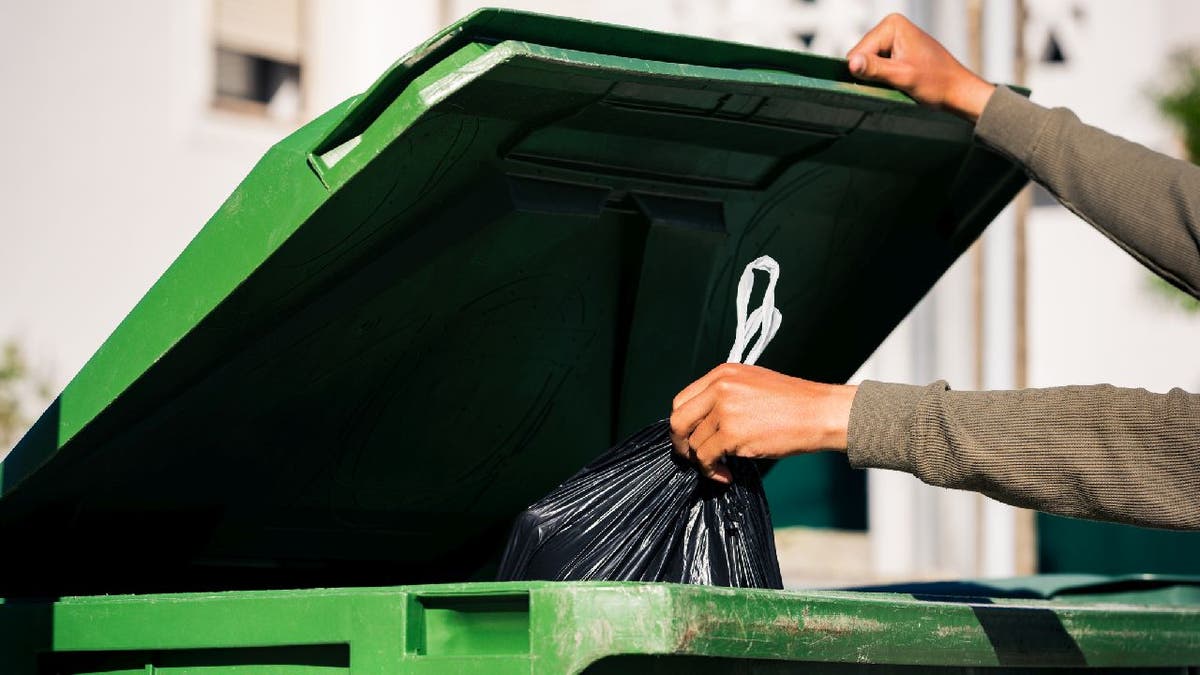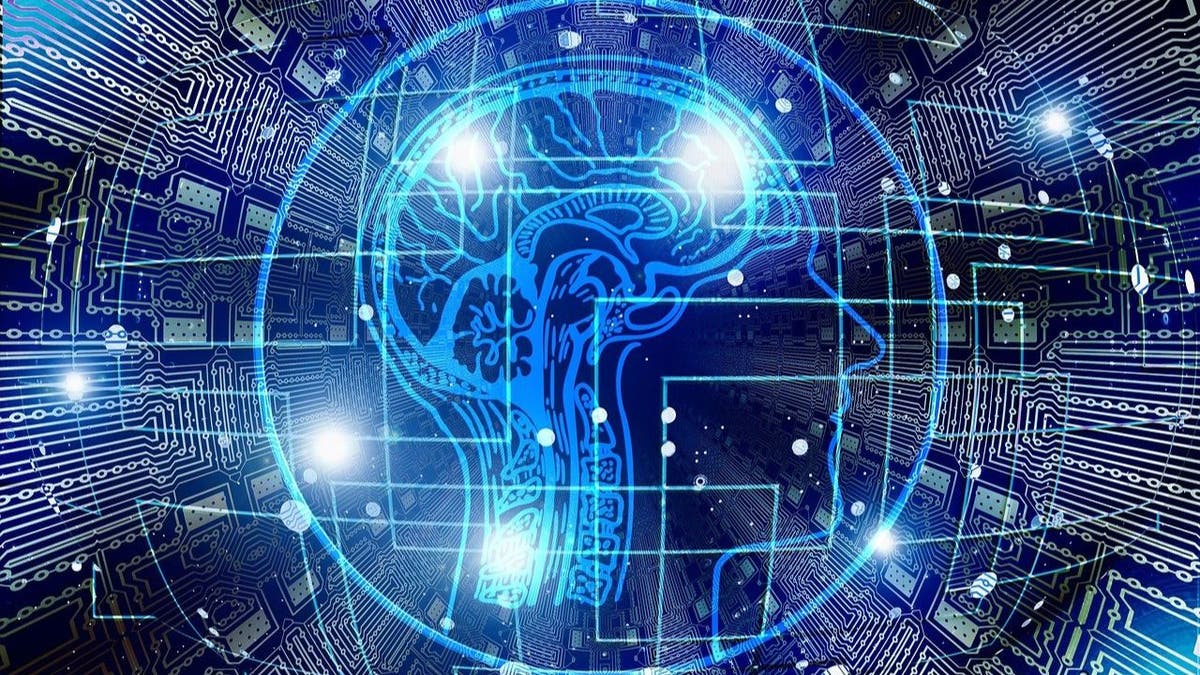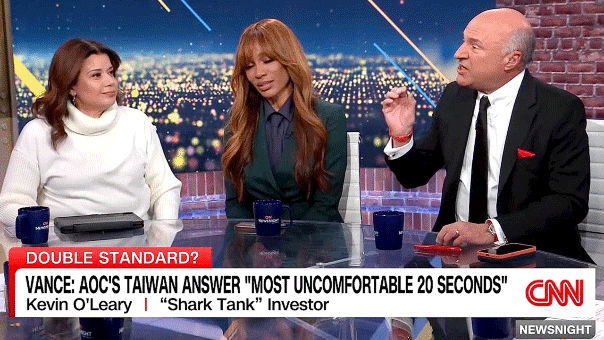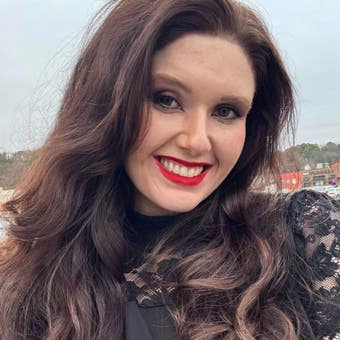Dr. Michio Kaku, theoretical physicist, on the history of artificial intelligence
Dr. Michio Kaku discusses the advancements of AI since the early stages of development dating all the way back to Greek mythology and Pandora's box.
Some might say A.I. is garbage, but it's actually helping humans in several ways – even helping them organize just that.
Young innovators Ian Goodine and Ethan Walko have developed the AuditPRO, a patent-pending waste auditing system powered by A.I. that "allow[s] businesses to gather real-time data about their waste stream composition" and is used just like a regular waste bin, according to the company rStream Recycling's website.
The company rStream is a startup founded by Goodine and Walko to explore such A.I. and robotics technology for waste management and compost collection purposes. The AuditPRO is just some of its technology.
According to the "All Things Considered" podcast, it uses thousands of images to train the program to organize garbage "more efficiently than humans."
The use is simple, but the design is a little more intricate.
PARALYZED MAN REGAINS HIS ABILITY TO WALK THANKS TO ARTIFICIAL INTELLIGENCE

rStream's AuditPRO aims to make waste management more efficient by working toward a process that sorts garbage accurately. (iStock)
"[It's] essentially a fancy photo booth for trash. A user would walk up to it like they would any [dish drop-off area] in a high-traffic venue. They’d place their waste in the system on a conveyor belt in this case, instead of directly into the bin," Goodine told Judie Yuill, guest host of the podcast.
"That conveyor belt would magically turn on because it has detected the presence of an object, and we would be able to start taking pictures and videos of the objects that were thrown away, which are then used for analytics. We can use our A.I. algorithm to determine what was thrown out," he continued.
Currently, the program does not sort the waste itself, but is instead being checked to ensure it will do so accurately once the process starts.
"Our long-term vision is to develop a robotic sorting system. But as a startup, our phase-one pilot at UMass Amherst is this audit process system to ensure that the brain of the system – the artificial intelligence – is extremely accurate, so when we sort, things [will be] going in the right place next year," Goodine explained.
OPINION: HOW ARTIFICIAL INTELLIGENCE IS CHANGING HEALTH CARE IN TREATING STROKE VICTIMS

Artificial intelligence (AI) is advancing rapidly, bringing unprecedented benefits to us, yet it also poses serious risks, such as chemical, biological, radiological, and nuclear (CBRN) threat (Cyberguy.com)
The technology was born at the University of Massachusetts (UMass) Amherst, where Goodine and Walko studied mechanical engineering. Their previous work with waste studies birthed the idea to make things more efficient instead of having to manually sort through trash like before.
"We had an opportunity to investigate recycling and the challenges through a senior design project… and then eventually it morphed into its own animal. And that happened during our graduate studies as well," Walko explained.
But there are challenges with getting the technology just right so that it can identify variations in objects in order for it to recognize them and generate decisions, Goodine told the podcast.
"There are tons of different types of waste fractions. Whether they’re cans or bottles or fibers, you name it, it’s there. This makes it a very exciting technical challenge for A.I. and an exciting place for us to pursue," he continued.
WHAT IS ARTIFICIAL INTELLIGENCE (AI)?
A.I. technology has been used to mitigate several challenges humans face, helping medical professionals spot and diagnose health conditions earlier than before, helping students and teachers in the classroom and even helping in the waste management realm in other ways.
Winnow, a food waste solution company, for example, has developed an A.I.-powered system to reduce food waste in commercial kitchens by using machine learning and a camera to measure food that's tossed out each day.
"We use computer vision to identify what's being wasted in real time, literally as the food's being thrown away," CEO Marc Zornes previously told Fox News Digital. He explained that the system also utilizes a scale to measure the food being thrown out and can then decipher the cost and profile of what's being wasted.
FOX News' Angelica Stabile contributed to this report.












































